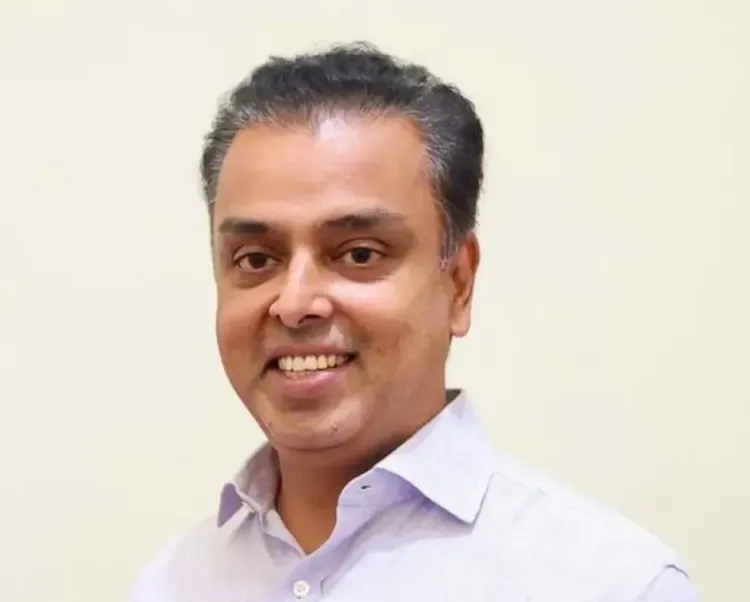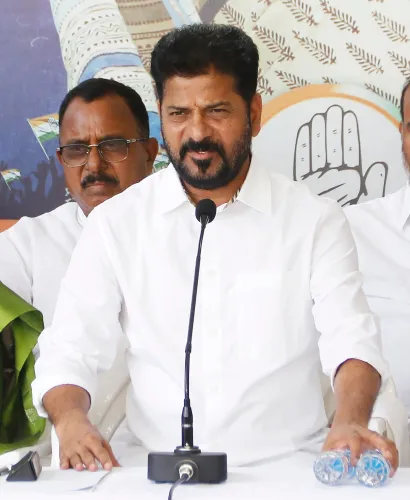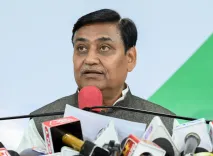What Immediate Actions is Deora Advocating for Mumbai's Air Pollution Crisis?

Synopsis
Key Takeaways
- Milind Deora urges BMC to suspend construction activities.
- A temporary halt is needed until air quality improves.
- The air pollution crisis is labeled a public-health emergency.
- Strict dust control measures at construction sites are essential.
- Real-time AQI monitors should be installed in key areas.
Mumbai, Nov 27 (NationPress) As Mumbai faces a significant decline in air quality and troubling levels of pollution, Shiv Sena MP Milind Deora has called upon Brihanmumbai Municipal Corporation (BMC) Commissioner Bhushan Gagarin to implement urgent and extraordinary measures. Among his recommendations is a temporary suspension of all excavation and construction activities until air quality shows improvement.
Deora emphasized that the city is in the midst of a serious air pollution dilemma, labeling it a “public-health emergency”. He has made a strong case for immediate actions to combat the deteriorating air quality.
According to Deora, the alarming levels of pollution present grave health risks for millions living in the city.
In a detailed two-page communication, Deora stated, “The air pollution crisis in Mumbai is now beyond seasonal variations — it has escalated into a public-health emergency. India necessitates a comprehensive national initiative and consensus on air pollution. Mumbai is in desperate need of cleaner air. As a Mumbaikar and elected representative, I believe we deserve better. It is my responsibility as your MP to stand with you on this pressing issue. Let’s unite and foster a public-awareness movement aimed at ensuring clean air.”
Recent data shows that Mumbai's Air Quality Index has reached perilous levels.
On November 22, the AQI peaked at 298 (Unhealthy), with PM2.5 recorded at 126 µg/m³ and PM10 at 163 µg/m³. The following day, November 23, the conditions remained critical, with an AQI of 255, PM2.5 at 110 µg/m³, and PM10 at 138 µg/m³. October 2025 was reported as Mumbai's most polluted month, with various monitoring stations indicating their highest PM2.5 and PM10 levels since January,” he remarked.
In the BMC Environment Status Report for 2024-25, Deora noted that annual PM10 levels across monitoring zones vary between 70-125 µg/m³, while PM2.5 levels range from 27-52 µg/m³, with Chembur reporting the highest levels.
He is advocating for a temporary moratorium on all road excavation, construction, and digging activities until AQI levels citywide drop to acceptable standards, pointing out that construction dust is the leading contributor to particulate pollution in Mumbai. Strict daily inspections at construction sites should be enforced, with immediate closure of any sites failing to comply with dust-control regulations, mandatory washing and water-sprinkling for vehicles transporting debris, cement, soil, and construction materials, and on-site washing bays as a required measure. Additionally, enhanced dust-suppression techniques, including fogging, roadside water-sprinkling, and mechanical sweeping, should be prioritized, particularly in areas severely affected by pollution.
Furthermore, Deora has proposed the installation of real-time AQI monitors at construction and industrial sites, with air-quality data made public on a ward-wise basis and zero tolerance for repeat offenders, which would include hefty fines and restrictions on future permits or participation in tenders.
Prolonged exposure to elevated PM2.5 and PM10 levels is linked to increased risks of respiratory illnesses, cardiovascular disease, and long-term health complications, affecting millions, including vulnerable populations such as children and the elderly.
“In spite of BMC’s guidelines from October 2024 mandating full barricading, green-cloth coverings, water sprinkling, dust-extraction systems, and AQI monitors at construction sites, adherence remains inconsistent. Some neighborhoods, like Mazagaon, have frequently surpassed an AQI of 300, indicating that the current enforcement measures are inadequate,” he added.
Deora emphasized that air-quality management should be a continuous priority rather than a seasonal response, urging for immediate actions that benefit the health and future of Mumbai.










